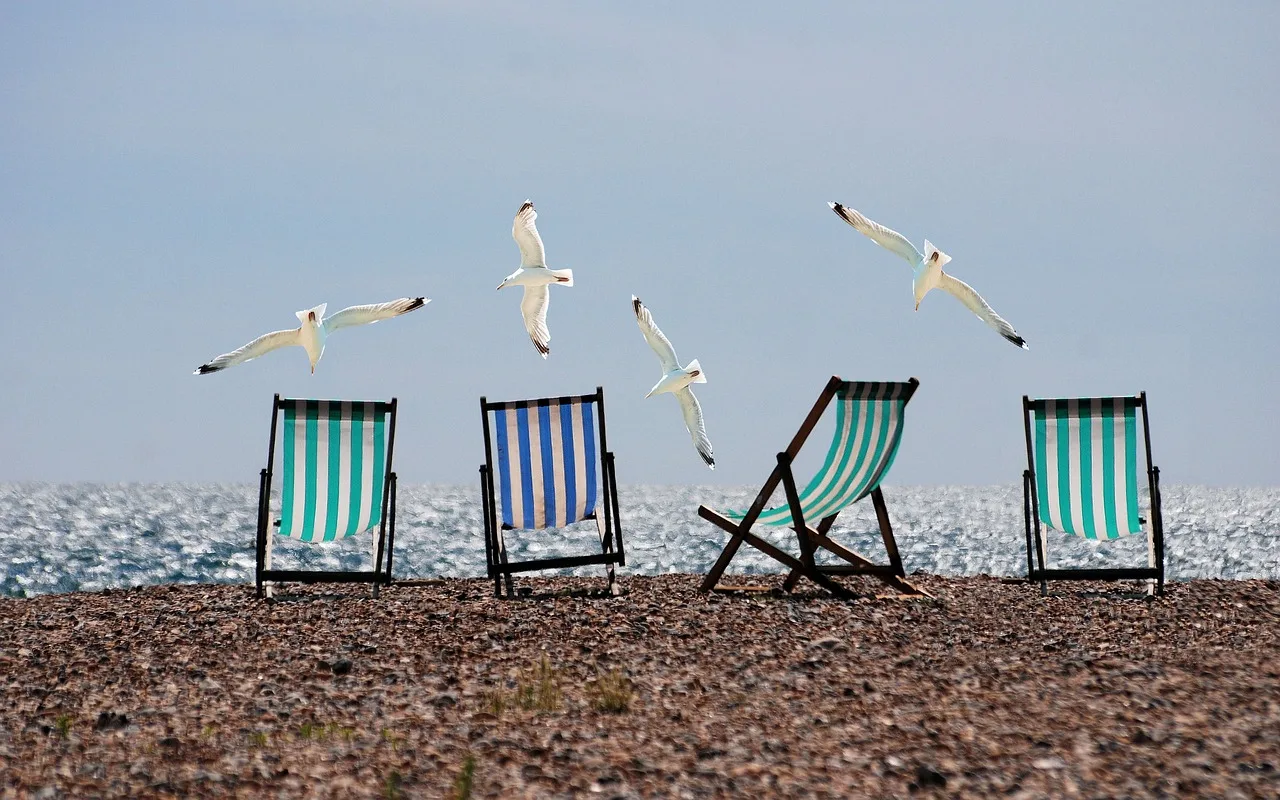“More and more Poles are expressing optimism regarding their personal finances. Although the majority of consumers still expect prices of the most commonly purchased products to rise, at the same time, 50% of Poles declare having money left at the end of the month. The upcoming summer season is a period of vacations for most of us. Four out of ten participants in Deloitte’s ‘Consumer Signals’ study plan to stay in a hotel during their vacation, and half of the respondents intend to travel by train.
The 55th edition of Deloitte’s Consumer Signals study was conducted at the end of May this year. One of the verified areas was consumer preferences related to the upcoming holiday season. Similar to last year, approximately 80% of those surveyed plan to take a holiday. One in four of us wants to spend their vacation with a loved one, and 23% plan to visit historical and cultural sites during this time.
Financial reasons most commonly lead us to abandon holiday plans. 73% of those not going on vacation cited lack of funds as the main reason for this decision. This represents a decrease of 7 percentage points compared to the previous year. 22% of people in this group (+5 percentage points year-on-year) stated they intend to use the money they would have spent on vacation for other purposes.
Those committed to taking a vacation most frequently choose destinations far from their place of residence (31% of responses). 23% of respondents from this group (-3 percentage points year-on-year) seek budget-friendly opportunities and adjust their vacation plans accordingly, while 13% (-1 percentage point year-on-year) are primarily motivated by a desire to visit a specific place.
The summer months traditionally mark the holiday season for Poles. Importantly, this year saw a significant decrease in the percentage of people giving up vacations due to financial reasons. At the same time, more people are considering reallocating the funds they would have spent on vacation to other purposes, such as home renovations. This may indicate that some Polish consumers are planning vacations outside the peak season,” said Dr. Aleksander Łaszek, Senior Manager, Economic Analysis Team, Deloitte.
“28% of all Polish respondents plan to travel abroad by plane during their vacation (+3 percentage points year-on-year). However, train travel remains the most popular means of vacation transportation, chosen by every second respondent. As for accommodation, hotels are the preferred choice (42%, +2 percentage points year-on-year), followed by renting an apartment or holiday home (33%, +3 percentage points year-on-year).
Increasing Polish Optimism, Though Concerns Remain Strongly Visible
Polish sentiment regarding individual financial situations has improved compared to the previous survey. 50% of respondents now claim to have money left at the end of the month (up by 3 percentage points from the previous month). The proportion fearing their ability to meet current payments has dropped to 29% (-2 percentage points month-on-month). 42% of Poles report a worsening personal financial situation, a decrease of 2 percentage points compared to the previous month. Fewer people are also concerned about the state of their savings, now accounting for 36% of respondents (-2 percentage points month-on-month). Meanwhile, the percentage expecting an improvement in their financial situation over the next year remains unchanged. Half of the respondents are unable to cover unexpected expenses (52%). Those expecting an increase or stability in their incomes amount to 48% of all respondents (-2 percentage points month-on-month). Three out of four Poles still anticipate price increases for the most frequently purchased products.
Expectations regarding changes in prices of specific product categories were also examined. 69% of Polish consumers anticipate higher prices for food and beverages, which is 4 percentage points lower than the previous month. The percentage expecting fuel price increases has decreased by 2 percentage points to 71%. 66% (-3 percentage points month-on-month) anticipate higher prices for alcohol and cigarettes. Less optimistic forecasts are seen for home utility bills (expected to rise by 80% of Poles, +4 percentage points month-on-month) and clothing (61%, +1 percentage point month-on-month). Expectations for restaurant price increases remain unchanged at 73%.
Concerns about prices are not limited to Poland but are also evident in other countries. The highest percentage of respondents concerned about further price increases for the most frequently purchased products and services were recorded in Australia (85%), Portugal (84%), Spain (82%), and South Africa (81%). At the other end of the spectrum were South Korea (65%), Saudi Arabia (63%), Japan (62%), and China (39%).
The improving optimism index among Polish consumers regarding personal finances is certainly good news for the tourism industry and the broader consumer sector. The decreasing percentage of people concerned about their ability to meet current payments may suggest that Polish consumers may be somewhat more relaxed about expenditures in the near future, such as during vacations. On the other hand, nearly three-quarters of respondents are aware of potential price increases in restaurants. Polish tourists are aware that dining out during holidays can be a significant expense,” said Anna Rączkowska, Partner in the Tax Advisory Department, Deloitte.
About the Study
The latest version of the study was conducted between May and June 2024. This was the 55th edition conducted globally and the 46th in which Polish consumers participated. In total, Deloitte experts surveyed residents of 20 countries, including Saudi Arabia, Australia, Brazil, Canada, China, the Netherlands, Spain, France, Germany, India, Japan, South Korea, Mexico, Portugal, South Africa, Italy, the United States, the United Kingdom, and the United Arab Emirates, in addition to Poland.”
